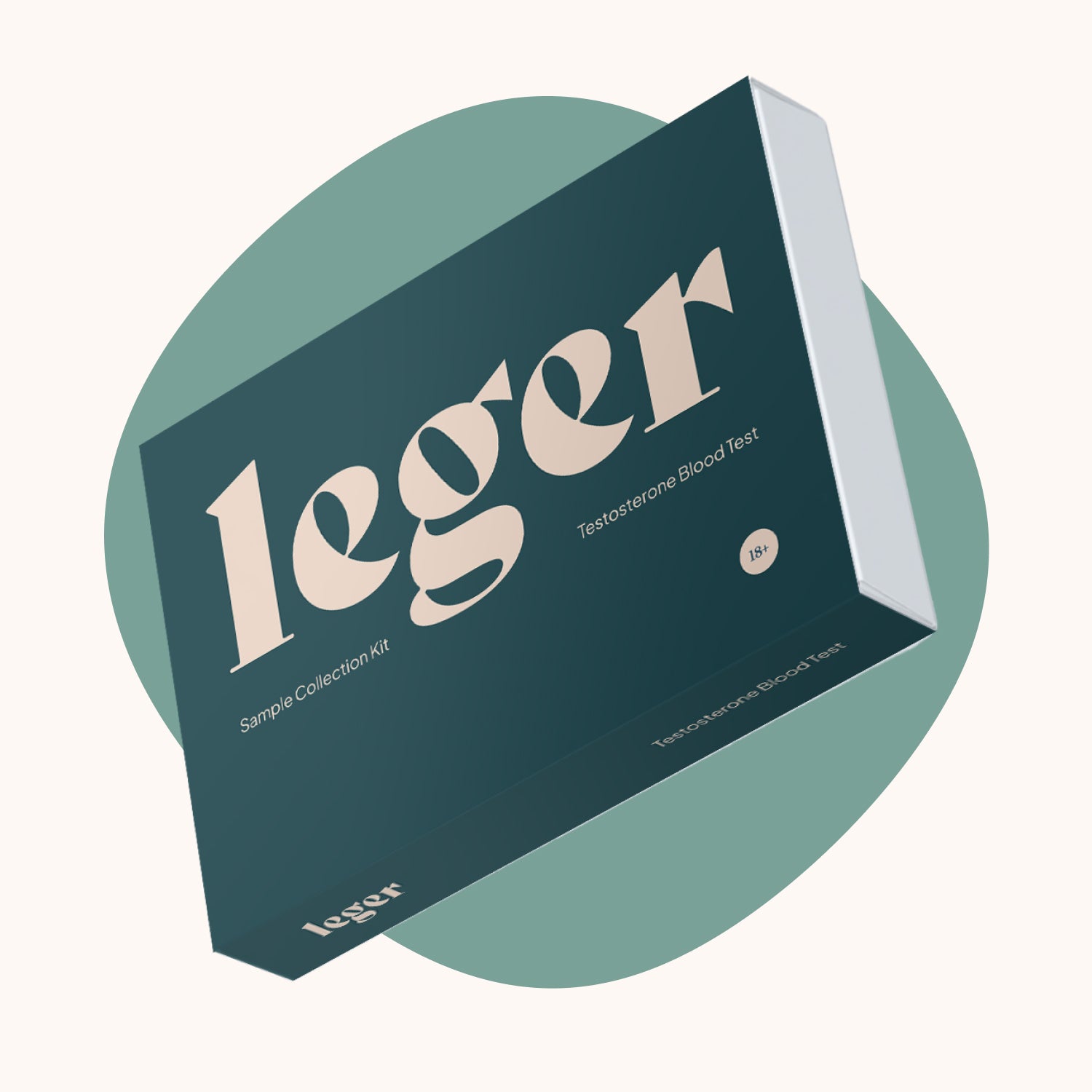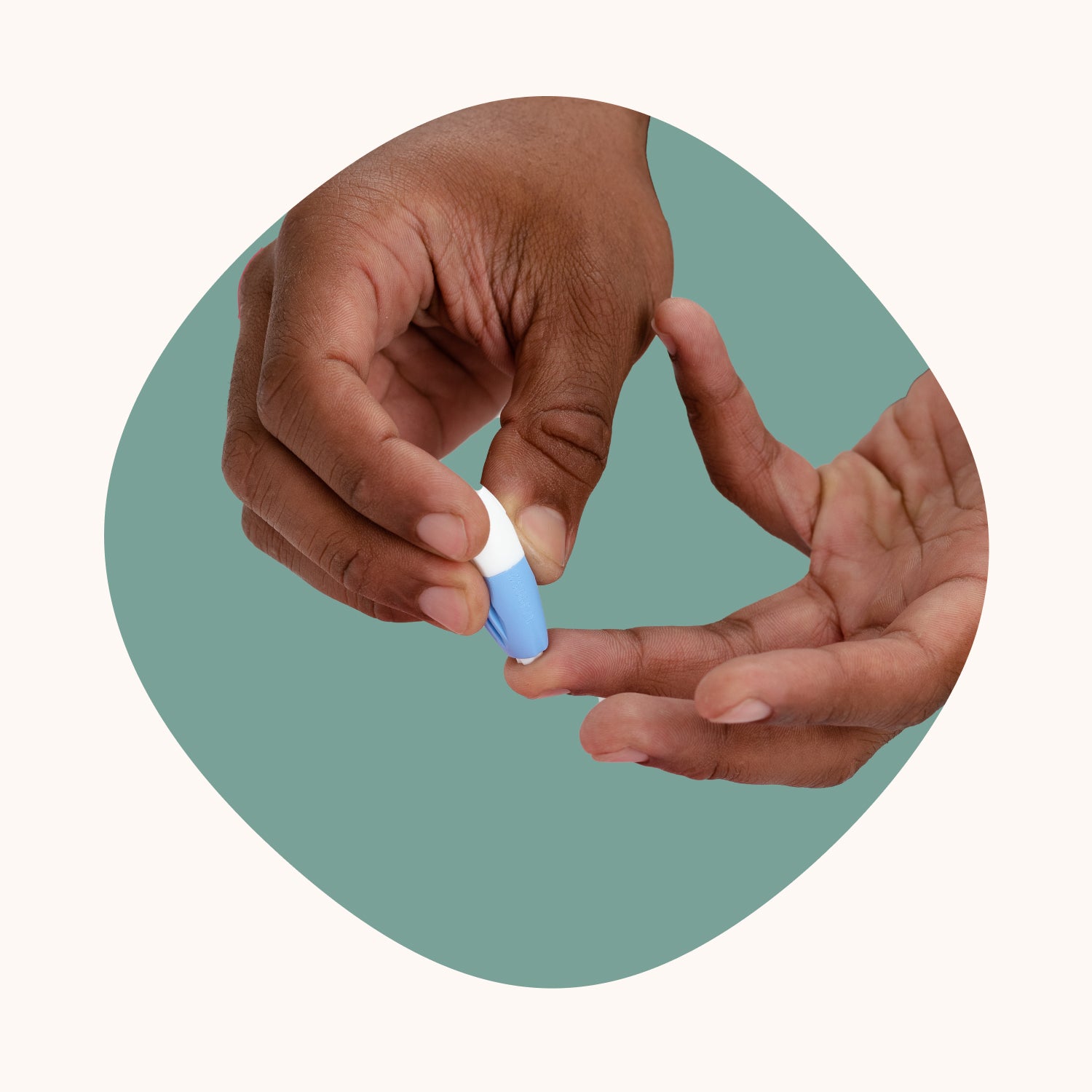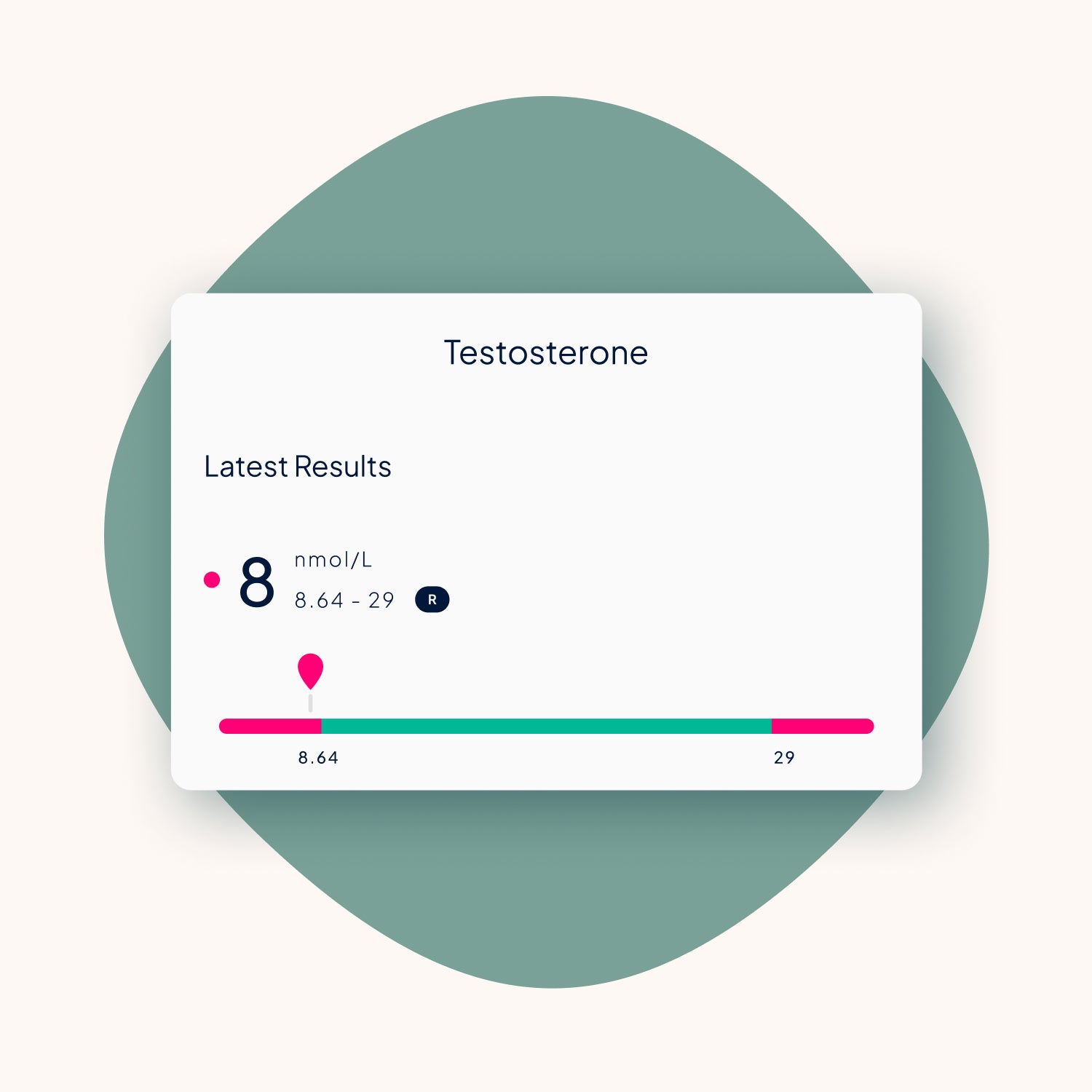
Dr James Greenwood
MBCHB, MRCGP
TRT Doctor
Low testosterone (also called low T or testosterone deficiency) is when blood levels of testosterone are below around 15-12 nmol/L. Classic symptoms of low testosterone include feeling more tired than usual, struggling to focus, losing interest in sex, or noticing weight gain around the middle.
If this sounds familiar, please know that you’re not alone.
At Leger Clinic, our expert TRT doctors help men across the UK identify low testosterone and explore safe, medically supervised treatment options.
Jump to:
- What is Testosterone and Why It Matters
- Nine Common Signs of Low Testosterone
- How to Check Testosterone Levels in the UK
- What Causes Low Testosterone?
- How TRT Can Help
- Could I Have Low Testosterone?
- Next Steps: Testing & Treatment Safely
- FAQ
What is testosterone?
Testosterone is a key male hormone, affecting sex drive, energy, mood, muscle mass, bone density, and more. Levels naturally decline after your late 30s or early 40s, but for some men, this drop becomes significant enough to cause symptoms.
Around one in four men over 30 experiences low testosterone — and many don’t even know it. Low testosterone can affect your energy, mood, and sex life, but a simple blood test is the only way to know for sure. Taking that step could lead to the right treatment and a big improvement in how you feel.
Low testosterone symptoms in men
Not all men experience the same symptoms. However, for low testosterone in males, symptoms include:
- Low sex drive — less interest in intimacy
- Erectile dysfunction — harder to get or maintain erections
- Fatigue — persistent tiredness despite rest
- Loss of muscle mass — training may feel less effective
- Increased belly fat — often linked to dropping T levels
- Mood swings — low T can cause anxiety, irritability, low mood
- Poor concentration — forgetfulness and brain fog
- Thinning hair — body or facial hair loss
- Fragile bones — long-term low testosterone may reduce bone density
If this sounds familiar, you can take our ADAM Low Testosterone Quiz
How to check testosterone levels in the UK
A testosterone blood test taken in the early morning gives the most accurate results. At Leger, we combine blood tests, symptom tracking, and lifestyle review to confirm low testosterone.
You can't diagnose low testosterone on blood levels lone, we look at the lack of testosterone in combination with any low testosterone-related symptoms.
What causes low testosterone?
Low testosterone can be a natural part of ageing. Just to be clear, not all men who experience a decline in testosterone levels will experience troublesome symptoms.
Low testosterone can be a sign of:
- Age: Natural decline after 30s–40s
- Medical conditions: Issues with testes or pituitary gland
- Lifestyle factors: Stress, alcohol, poor sleep, being overweight
- Medications: Certain prescriptions may affect hormone levels
What is TRT for men?
If two blood tests confirm low testosterone, TRT (testosterone replacement therapy) may be an option.
Done under medical supervision, TRT can:
- Improve mood and mental clarity
- Increase energy and motivation
- Enhance sex drive and erections
- Build lean muscle and strengthen bones
- Improve sleep and recovery
Could I have low testosterone?
Feeling flat, low in energy, or “not yourself”? Don’t ignore it. Use our ADAM questionnaire, check your testosterone levels, and speak to an expert doctor in the UK.
Next steps: testing and treatment safely
- Take our easy-to-use Testosterone Blood Test
- Review results with a qualified doctor
- Explore medically supervised TRT if appropriate
- Monitor your progress regularly
FAQ
-
Q: What are the signs of low testosterone?
A: Low sex drive, fatigue, mood swings, muscle loss, increased belly fat, and erectile dysfunction are common symptoms of low testosterone. -
Q: How can I check testosterone levels at home?
A: You can order a medically approved at home testosterone test online. Your testosterone test kit will be delivered straight to your door. Once you've completed the test, you can return it to a UKAS-accredited lab and we'll send you your results. -
Q: Is TRT safe in the UK?
A: When done under medical supervision, TRT is safe and effective for men with confirmed low testosterone. -
Q: How do I get TRT in the UK?
A: To qualify for TRT, you'll need a licensed TRT doctor to confirm you have low blood levels of testosterone that are accompanied by low testosterone related symptoms. From there, your clinician will discuss any treatment options with you.





Share:
What type of TRT is right for me?
Testosterone boosting supplements: do they work?